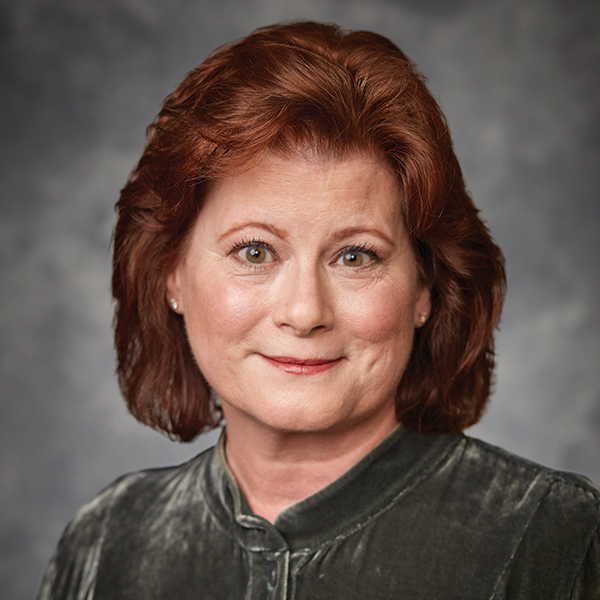Dr. Theresa M. Towner
- Professor of Arts and Humanities
- Ashbel Smith Professor

The University of Texas at Dallas supports the Ashbel Smith Professorship. Dr. Ashbel Smith was the first president of the UT System Board of Regents. He had a long and distinguished career in medicine, education and public service. During his term on the Board of Regents, Smith was dedicated to recruiting the best faculty members available and to developing a curriculum befitting a “university of the first class.” Smith became known as both the “father of Texas medicine” and the “father of The University of Texas.”
“The students at UT Dallas are outstanding; they are so open to new thinking and creative thought. And the University’s administration also has been so receptive to my ideas. It has been such an honor to work at this University.”
Dr. Theresa M. Towner is a specialist in the works of William Faulkner, while also researching African-American literature and fantasy literature. Her classroom work has been recognized as she received the Chancellor’s Council Outstanding Teaching Award in 2002 and The University of Texas System Regents’ Outstanding Teaching Award in 2010.
After earning her PhD from the University of Virginia, Towner began her career at UT Dallas as a lecturer in the School of Arts and Humanities, and advanced to the position of professor of literary studies, which she was named in 2006.
Towner has written dozens of books and articles about Faulkner, including her most recent contribution, “Faulkner’s Mississippi-Writing,” in A Literary History of Mississippi, an anthology of Mississippi writers. She is associate editor of a project called Digital Yoknapatawpha. Yoknapatawpha is a mythical county in Mississippi where Faulkner set many of his stories. The project breaks down the characters, places and events of Faulkner’s books into a searchable database.
Faulkner is often known for being difficult to understand, but Towner said the author wrote wonderful, thoughtful stories. And she is pleased she can help students enjoy Faulkner. “I tend to do two types of teaching: One is with texts that students know are very difficult, inaccessible and complicated — ones they’re afraid to tackle. And the other is the kind of texts that students think they know really, really well, but then they are surprised that they can learn so much more,” Towner said.
According to Towner, the best art is highly specific and not universal. “The great artists bring readers to a time and place that they inhabit alongside the characters, as if for the first time, no matter how often they have read the work in question” she said.